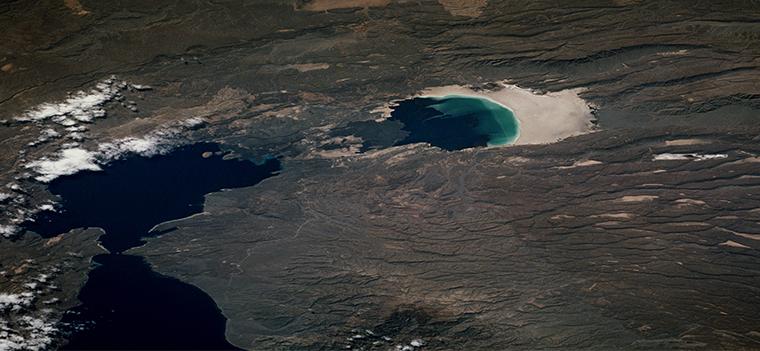News
- Djibouti’s geological characteristics are exceptionally favorable for geothermal development.
- Geothermal energy could provide reliable baseload power for the country, but private investment for exploration drilling has been lagging.
- ESMAP support has helped open the doors to Djibouti’s geothermal development, recently brokering a $18 million contract with Iceland Drilling Company.
Djibouti lies at the intersection of three tectonic structures in Africa’s Great Rift Valley—where the Earth’s crust thins as the continent is gradually tearing apart. The Rift Valley has an estimated potential of tens of thousands of megawatts of geothermal energy—putting a wealth of geothermal power at Djibouti’s fingertips.
The potential for Djibouti is immense, but still untapped.
Technical difficulties associated with the high temperature resources, weak interest in private sector investment, and insufficient implementation capacity have been the main barriers to geothermal development.
Local geothermal generation could enable Djibouti to provide electricity to its entire population.
Currently, access to electricity remains relatively limited, with only about half of the population—concentrated in the capital—serviced. Moreover, electricity prices are among the highest regionally as the entirely depends on diesel fuel and fuel oil imports (30%) and hydroelectricity imported from Ethiopia (70%) to meet its energy needs.
If the country is to increase electricity access to its citizens and reduce its energy dependency and electricity costs, it must further diversify its production sources and secure steady, reliable, and inexpensive sources of energy.
Over the past decade, Djibouti has taken the initiative to drastically reduce fossil fuel dependence by promoting development of its own geothermal potential as it moves towards its own “green growth goals”—Vision Djibouti 2035.
In 2013, ESMAP co-financed an exploration drilling project to assess the commercial viability of the geothermal resource in Fiale Caldera within the Lake Assal region. If the resource is confirmed for large-scale power generation, it could unlock Djibouti’s geothermal potential, particularly by fostering private sector investment in geothermal development.
Internally, ESMAP has provided technical expertise and operational support to the World Bank regional team working in Djibouti.
In May 2017, Électricité de Djibouti (EdD), the national electricity corporation, signed an $18 million agreement with Iceland Drilling Company, a leading company in the field of high temperature deep geothermal drilling, for the drilling and testing of two geothermal wells and two optional wells and to confirm the characteristics of the resource in Fiale Caldera. Jointly funded by the Government of Djibouti, the World Bank, AfDB, OFID, AFD, and GEF, ESMAP’s contribution will allow for the acquisition of testing equipment and instruments. It will also ensure an independent third-party inspection of the well test data and results.
To this extent, ESMAP has been instrumental in making it possible to develop the country’s abundant geothermal reserves as part of its the long-term development plan, Vision 2035, to fully transition from conventional thermal energy to renewable energy by 2020 and improve the quality of life for all Djiboutians.
Learn more about the ESMAP Renewable Energy Program.
